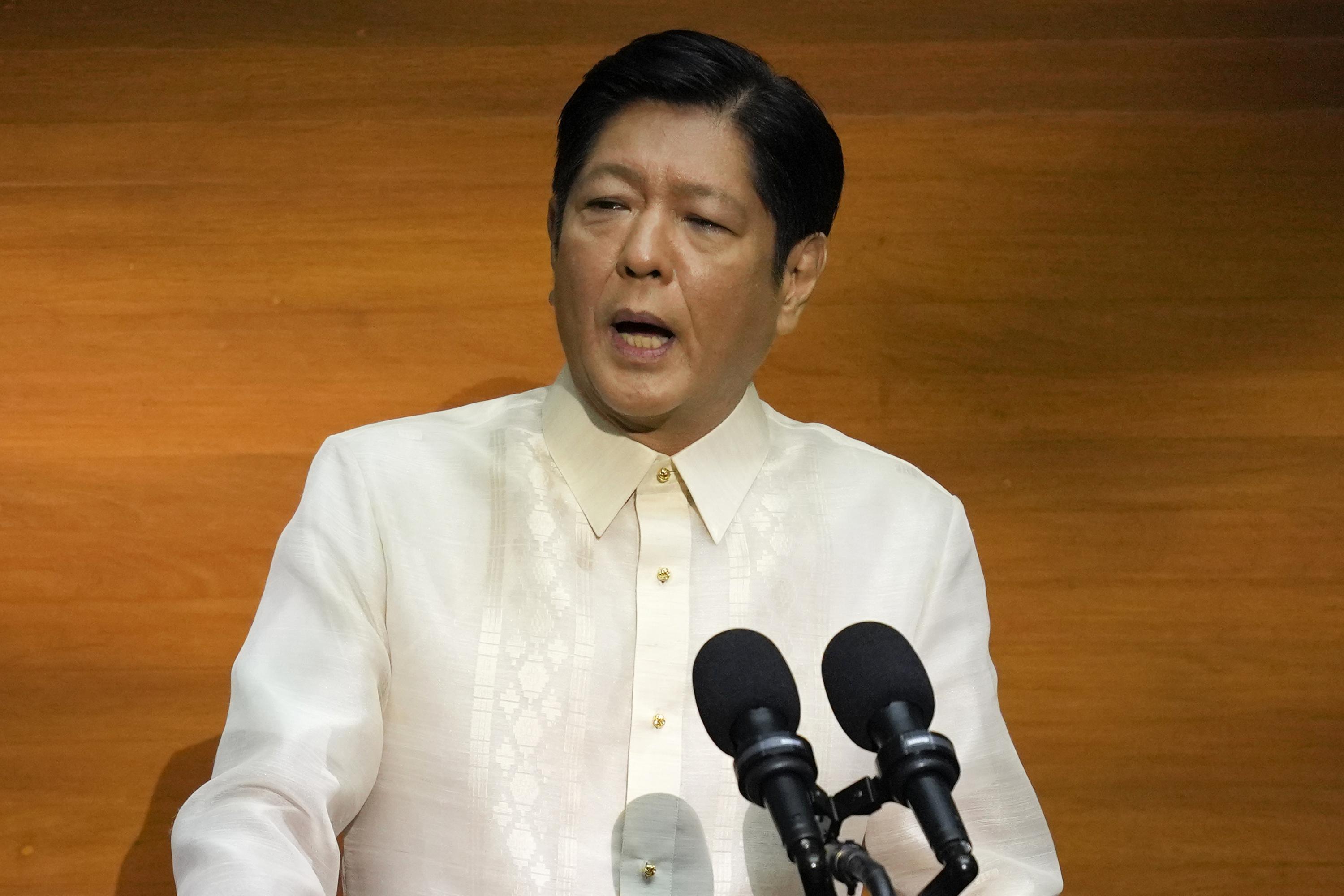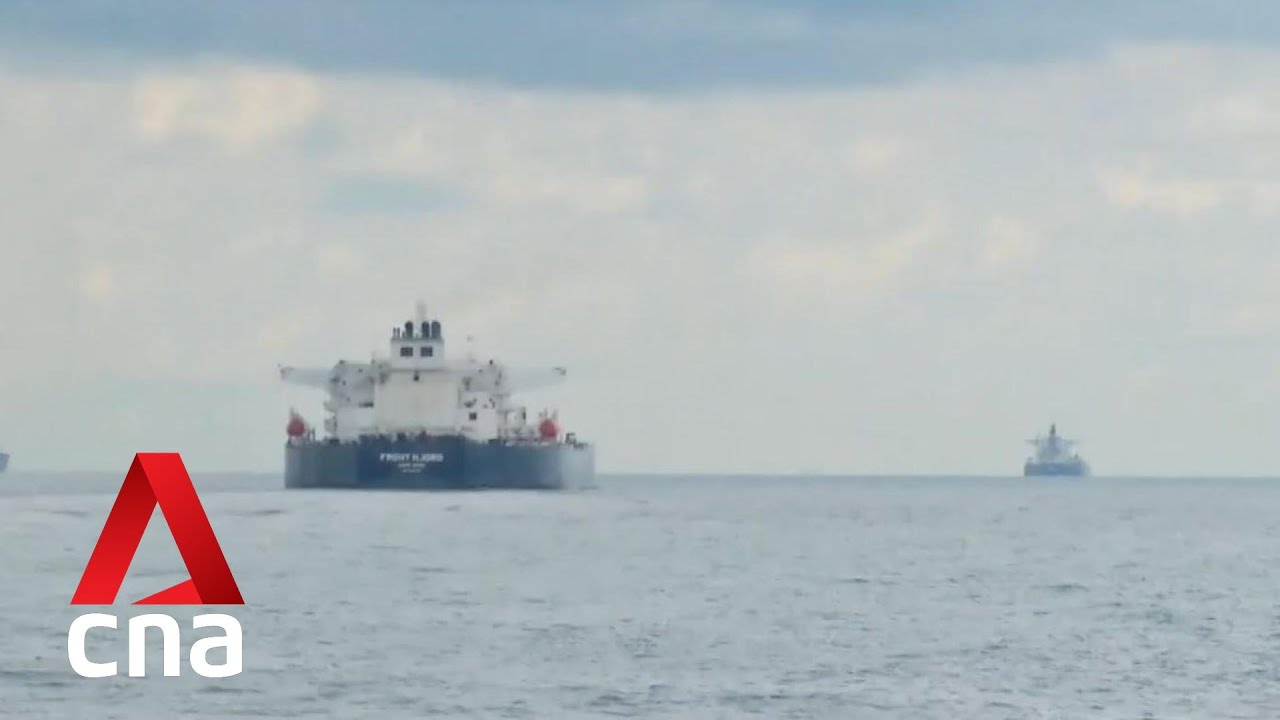Philippines President Says The Country Will Explore For Oil In South China Sea Even Without A Deal With Beijing
Philippines President says the country will explore for oil in South China Sea even without a deal with Beijing. He said this to stress that his country has the right to use energy reserves in the disputed waterway.
Author:Tyreece BauerReviewer:Elisa MuellerDec 01, 202280K Shares1M Views

Philippines President says the country will explore for oil in South China Seaeven without a deal with Beijing. He said this to stress that his country has the right to use energy reserves in the disputed waterway.
President Ferdinand Marcos Jr. said told reporters:
“„That's a big thing for us, and that's why we need to fight for what is ours and take advantage if there really is oil there.- President of Philippines Ferdinand Marcos Jr.
The previous government said in June that talks between Manila and Beijing about exploring for energy together in the South China Sea had ended because of constitutional and sovereignty issues.
According to Marcos:
“„That’s the roadblock, it is hard to see how we can resolve that. I think there might be other ways so it does not have to be G-to-G (government-to-government).- President of Philippines Ferdinand Marcos Jr.
When asked for a comment, the Chinese embassy in Manila did not answer right away. Marcos's comments came after his foreign affairs secretary said in August that Manila was open to new talks with China about oil and gas exploration and that any deal with China or any other country had to follow Philippine laws.
The Philippines gets most of its energy from imported fuel. This makes it vulnerable to supply shocks and rising oil prices, which have helped push inflation to a level that hasn't been seen in almost 14 years.
During a three-day visit to the Philippines last week, US Vice President Kamala Harris reaffirmed that the US would defend the Philippines and reaffirmed support for a 2016 arbitration ruling that invalidated Beijing's large claims in the South China Sea.
The ruling, which China didn't agree to, says that the Philippines has the right to use energy reserves inside its 200-mile (321-kilometer) Exclusive Economic Zone without asking permission from other countries.
Marcos said Thursday that by the beginning of next year, "we will have something more concrete" to say about US plans to visit Philippine military bases under the 2014 Enhanced Defense Cooperation Agreement. Washington wants to add more sites to the five that are already part of the EDCA. This law lets US military ships and planes rotate between bases that are agreed upon by both sides.

Philippine president asserts right to exploit energy resources in South China Sea
China's foreign ministry has said that the claims are false and that the wreck was given to China after "friendly negotiations." "We asked the Chinese why their reconstruction of the story is so different from that of the Philippine Navy," Marcos said.
The president of the Philippines talked about Vice Admiral Alberto Carlos's account of what happened. Vice Admiral Carlos is in charge of the Navy's Western Command in Manila. The officer said that the Chinese Coast Guard would have "forcefully seized" the cargo by cutting the tow cable of the Philippine ship. The Philippine ship was sent to check out a wreck that was seen about 730 meters from Tithu, which is one of the islets in the Spratly archipelago that is controlled from Manila.
Mao Ning, a spokeswoman for the Chinese Foreign Ministry, said that the pieces of the rocket were "spontaneously handed over" to the Beijing Coast Guard. How the rocket got near the Spratlys and why China was so eager to get it back are still mysteries.
The Philippines are right in front of the South China Sea, which is one of the most tense places in the world. Beijing says it has almost complete control over the sea. Manila has been a key U.S. partner in the region for a long time, but during the time Rodrigo Duterte was president, the country moved closer and closer to China's sphere of influence.
In recent years, the Philippine government has strengthened its political and economic ties with the People's Republic. It has also threatened to end the Visiting Forces Agreement (VFA), which has governed military cooperation with the United States since 1998.
More recently, Duterte's attitude toward China was seen as too passive by the top leaders of the Philippine military. For example, in March 2021, Beijing sent a "maritime militia" of hundreds of boats to the disputed Whitsun Reef Atoll, which is part of the Spratly Islands.
Even though an arbitration court in The Hague, Netherlands, rejected China's claim in 2016 and sided with the Philippines, Beijing still says it owns the second one.
Conclusion
China National Offshore Oil Corp. and PXP Energy Corp. have talked about a joint venture. PXP Energy Corp. has a permit to look for oil in the Reed Bank, which is a disputed area. But because Manila and Beijing have different claims, it hasn't been able to drill further or make a deal with CNOOC.
Jump to

Tyreece Bauer
Author
A trendsetter in the world of digital nomad living, Tyreece Bauer excels in Travel and Cybersecurity. He holds a Bachelor's degree in Computer Science from MIT (Massachusetts Institute of Technology) and is a certified Cybersecurity professional.
As a Digital Nomad, he combines his passion for exploring new destinations with his expertise in ensuring digital security on the go. Tyreece's background includes extensive experience in travel technology, data privacy, and risk management in the travel industry.
He is known for his innovative approach to securing digital systems and protecting sensitive information for travelers and travel companies alike. Tyreece's expertise in cybersecurity for mobile apps, IoT devices, and remote work environments makes him a trusted advisor in the digital nomad community.
Tyreece enjoys documenting his adventures, sharing insights on staying secure while traveling and contributing to the digital nomad lifestyle community.

Elisa Mueller
Reviewer
Elisa Mueller, a Kansas City native, grew up surrounded by the wonders of books and movies, inspired by her parents' passion for education and film.
She earned bachelor's degrees in English and Journalism from the University of Kansas before moving to New York City, where she spent a decade at Entertainment Weekly, visiting film sets worldwide.
With over 8 years in the entertainment industry, Elisa is a seasoned journalist and media analyst, holding a degree in Journalism from NYU. Her insightful critiques have been featured in prestigious publications, cementing her reputation for accuracy and depth.
Outside of work, she enjoys attending film festivals, painting, writing fiction, and studying numerology.
Latest Articles
Popular Articles